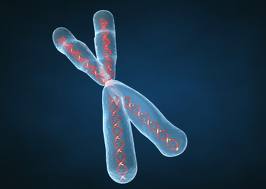US Department of Health threatens 23andMe
 The FDA (Food and Drug Administration) agency under the US Department of Health and Human Services published a letter to 23andMe startup executive director Ann Wojcicki warning of the legal consequences of not fulfilling the prescribed action.
The FDA (Food and Drug Administration) agency under the US Department of Health and Human Services published a letter to 23andMe startup executive director Ann Wojcicki warning of the legal consequences of not fulfilling the prescribed action.Officials warn that the analysis of personal genomes is a medical activity, and work without appropriate permission violates the Federal Food, Drug and Cosmetic Act (FD&C Act). In particular, the company offers the services of a personal genotyping service (PGS), within the framework of which it provides an individual report on the presence or absence of 254 diseases and conditions, including in the thematic categories of “hereditary diseases”, “health risks” and “reaction to drugs” . At the same time, PGS is positioned as a means for early warning of the risk of serious diseases such as diabetes, coronary heart disease, and breast cancer. DNA analysis helps to find unknown relatives, determine the pedigree, receive new information about their genetic markers as they are deciphered by the scientific community.
The FDA believes that most PGS uses indicate that a saliva sample container is a medical device and genotyping is a medical service. Such devices and services require FDA approval.
Recently, FDA employees tried several times to contact 23andMe to resolve the problem, but did not receive a response. Therefore, the FDA warns that if the company continues to operate without permission and does not make the necessary changes to the description of containers for saliva samples, this may cause “appropriate corrective action” without prior notice. Among the possible actions, the FDA names property confiscation, an injunction, and fines.

Founded in 2006, 23andMe has already attracted more than $ 160 million in venture financing from major Silicon Valley investors, including Google and Sergey Brin’s personal funds. Judging by open sources , 23andMe is one of only two startups in which Sergey Brin invested his own money.
It is known that last year 23andMe sent requests for seven tests to the FDA . Additional requests were sent this year, but still this is only a small part of the 254 tests that are carried out as part of the PGS.
Experts disagree on the value of the information that 23andMe provides as part of its service. Some considerthat an analysis of 1 million out of 3 billion genes (snaps) is not able to give any valuable recommendations for a healthy lifestyle that would be more useful than the usual advice of a therapist to eat properly, not smoke and move a lot.
Basically, 23andMe has options for getting around FDA restrictions. The fact is that this company itself is not involved in genotyping. This is a purely IT company that works only with information. OraSure Technologies is a manufacturer and distributor of saliva containers for users who paid $ 99. Each container has a unique barcode. People send sample containers directly to Laboratory Corporation of America (LabCorp) for processing. In turn, LabCorp for genotyping uses under contract devices based on Illumina HumanOmniExpress-24 chips. The results are sent electronically to 23andMe, where they are linked by a barcode to the user account created during registration on the site.
The FDA said that the main reason the agency wants to control 23andMe is the risk of false positives and false negative diagnoses (a good example ). Such information can prompt the user to undergo treatment or, conversely, reassure a person - and he will refrain from going to the doctor. At the same time, the terms of the 23andMe agreement directly indicate that the result of genotyping is not a diagnosis, the information is provided for reference purposes only and should not affect a person’s medical behavior.
Yesterday, 23andMe issued an official statement in connection with the FDA letter, which recognized the importance of permitting procedures and promised to work more actively with the FDA in the future.
